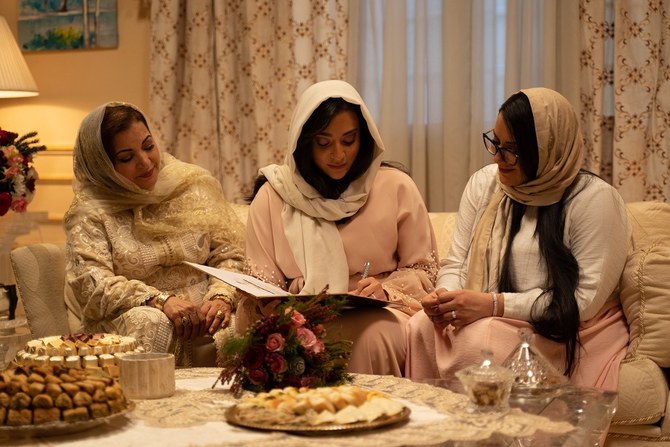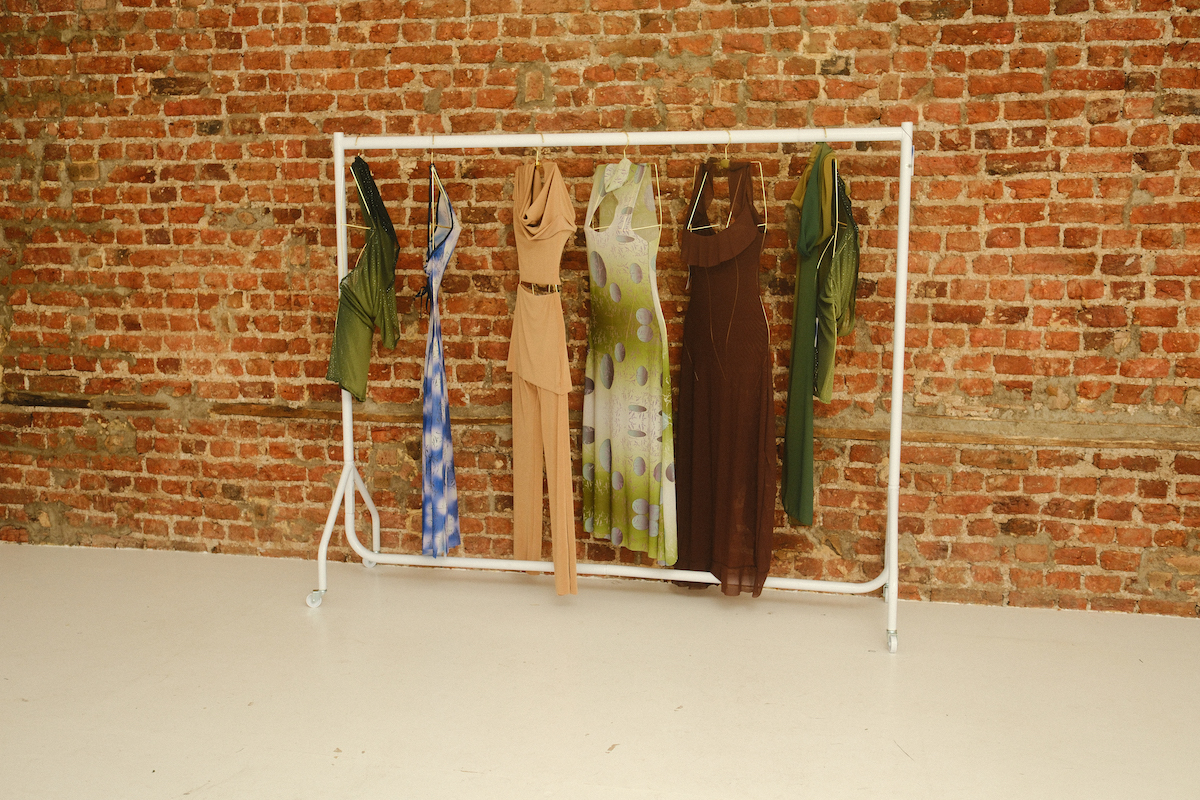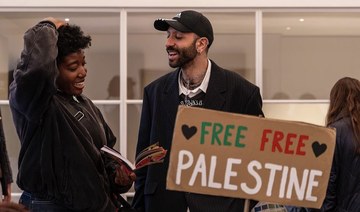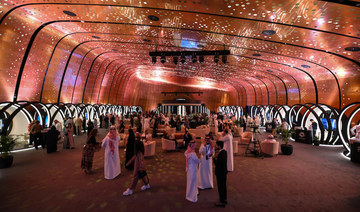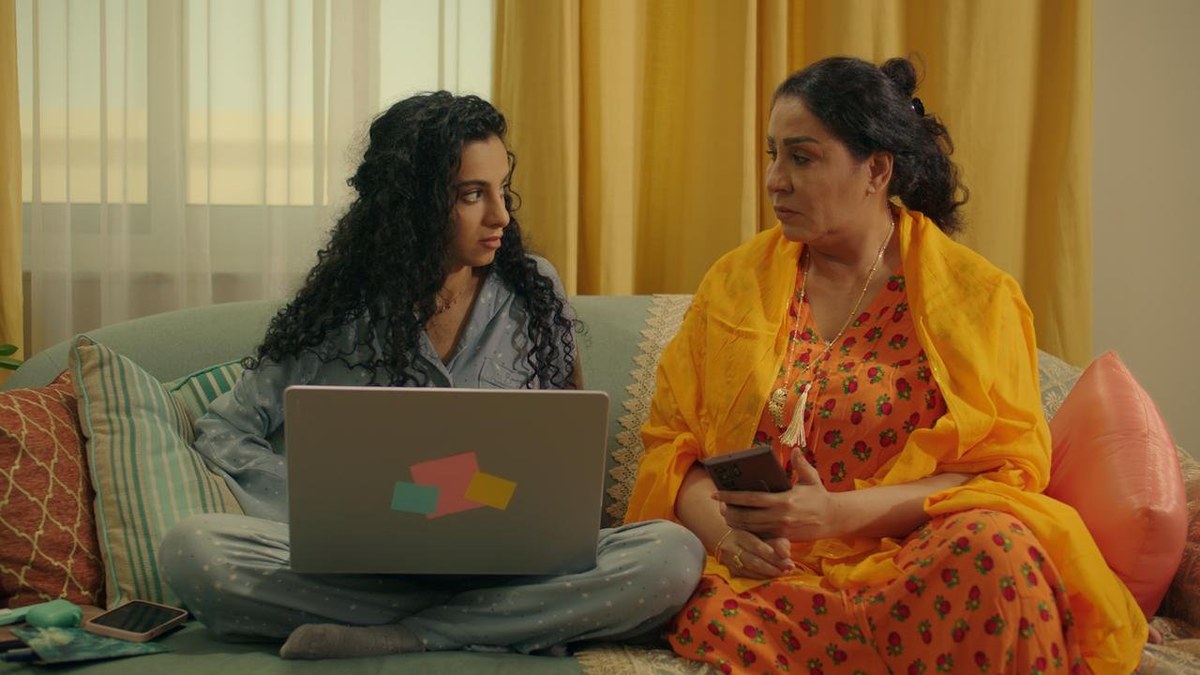DUBAI: Nearly 10 years ago, Saudi actor Moayed Althagafi received a message on Facebook from a total stranger, a young creative named Mohammed Makki. He was putting together a TV series called “Takki,” about the trials and tribulations of young people in Jeddah in a way that had never been displayed before on screen. Makki was hoping that Althagafi might take on the lead role. It was a message that changed Althagafi’s life.
“This is a moment I will never forget. When I received that message on Facebook, I realized in that very moment how much I loved acting. I knew because even before I had walked on the set, when it was just an idea in my mind, I still believed in that message. I believed in the work that we would do. I didn’t know what would happen after, I just believed. I was going to join them and act, just out of the love I felt for that idea, having no idea what would come next,” Althagafi tells Arab News.
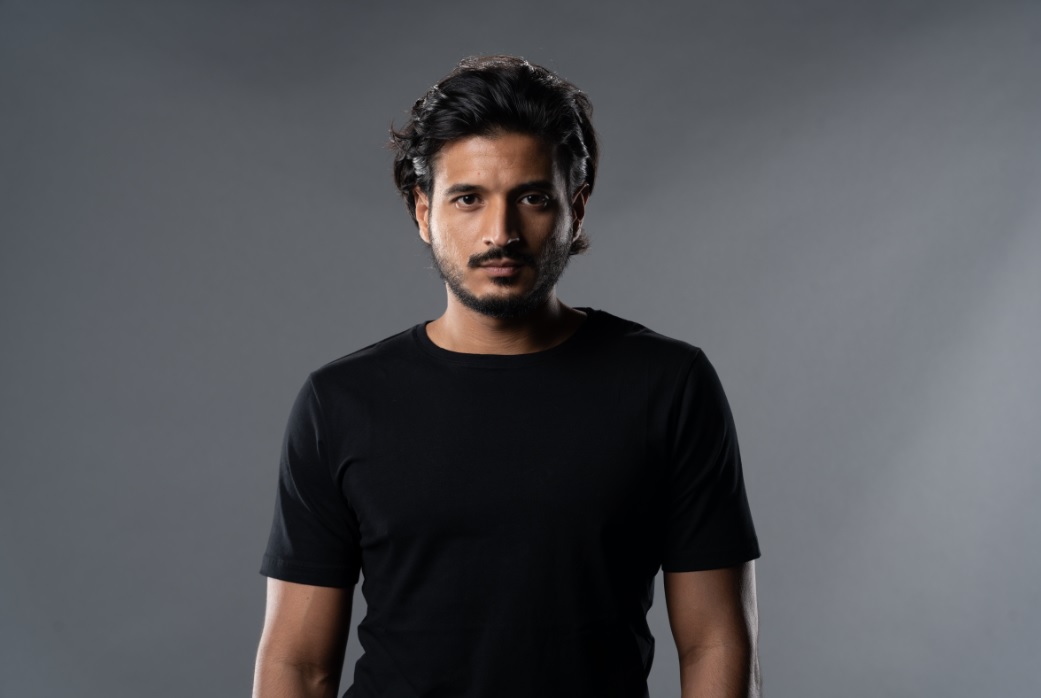
Saudi actor Moayed Althagafi. (Supplied)
What happened next was astounding—the show became a phenomenon as a web series, garnering millions of views on YouTube and launching the show into the national conversation of a rapidly changing Saudi Arabia. It initially ran from 2012 to 2015, sparking constant debate and often criticism for the bold choices it made for the time, including centering on young women in Saudi Arabia, to gain broad acclaim.
So it’s no surprise that when Netflix turned its attention to the Kingdom, in search of talents and stories that deserved to be seen by millions across the world, it was the team behind “Takki” that the world’s biggest streaming platform called. Netflix didn’t want to start over with something new, however. They wanted the world to see the first two seasons — and to continue the story in a transformed Jeddah, picking up exactly where things left off.
“Getting that call was one of the happiest moments of my life. It was honestly a shock find out that the third season would be produced by Netflix after six years. We didn’t really have much expectation of doing a third season, and we were quite sad about that, to be honest. We felt euphoria that the work we believed in so much was finally being recognized by one of the world’s biggest platforms,” says Althagafi.
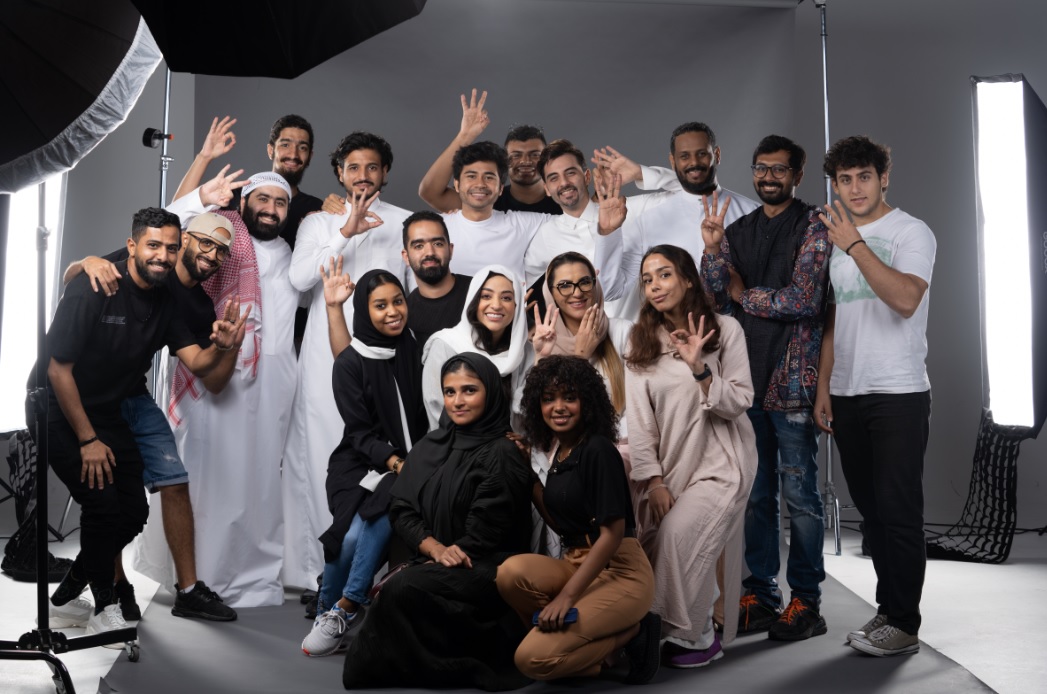
The full cast. (Supplied)
For Makki, the show’s creator and lead voice behind the scenes, picking the series up after a long pause opened up huge possibilities, especially as the Kingdom’s own transformation continues to reverberate. Althagafi’s character Malik, for example, was once an aspiring filmmaker in a country without cinemas. In season 3, which premiered on Netflix on October 28, Malik is now pursuing that dream in a landscape where it is achievable — but perhaps not as easy as he thought.
“In the last 10 years, we’ve seen a lot of amazing advances in the country, and the advances will have a direct effect on these characters,” says Makki.
“Specifically, as Malik has always wanted to succeed as a movie director, and Bayan (played by Khairiah Abulaban) has always had problems with transportation. Now he has platforms where he can show his movies, and she can drive. Advances in the show are following those happening in reality and we’re very happy about it.”
For Ali Alsharif, who plays Majed, it is not just the plot of the latest season that best reflects the changes in the Kingdom, it is the season’s very existence. Without Saudi Arabia’s recent evolutions, there would never have been a space for Takki to continue.
“The beautiful thing about the advances happening in Saudi Arabia, in my opinion, is that they are what made us reach Netflix. Because of the advances, the Saudi market in general is growing, and the world is seeing that it’s a good market,” says Alsharif.
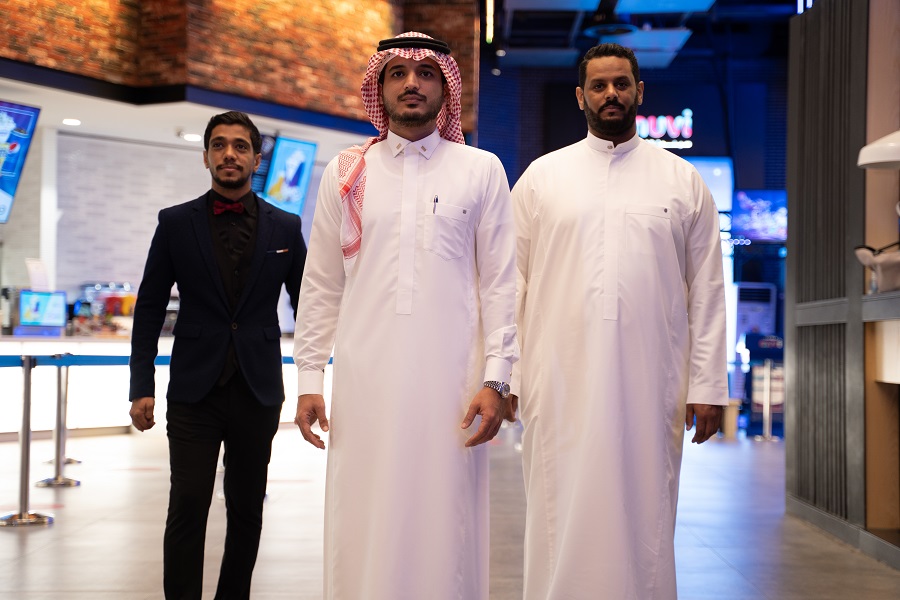
Moayed Althagafi (center) and Radwan Al Reemi (right). (Supplied)
“At the same time, it opened a lot of doors for Saudi Arabian directors and writers that are excited to create shows and movies, either on Netflix or other platforms. ‘Takki’ is an even more amazing show in this advanced Saudi Arabia. I predict that its success will allow many more to grow, and us all to be able to help each other.”
That change is coming sooner than many think, according to Althagafi.
“Saudi is now seeing rapid progress in the field of creating movies and TV shows. There is a ton of support from the (government) and the young people are showing so much talent, young people who have ventured abroad to places like the US, Canada and the UK, all coming back with experience. I predict that in five to 10 years Saudi will be competing worldwide in the field,” says Althagafi.
It was Makki’s early trips abroad each summer as teenager that first introduced him to the world of cinema, implanting in him a lifelong passion that he brought back to Saudi Arabia, and which drove him to create “Takki” in his early 20s.
“I started realizing my love for making movies and made my decision to go into this field when I was still in high school,” he says. “Every summer when we travelled, I went to the cinema constantly, and realized how much of an effect it had on me — my soul, my imagination and my feelings while I’m watching. Leaving the cinema gives me a feeling I don’t feel anywhere else. This is what made me excited and encouraged me to go into this field, made me start making short movies with my friends and cousins till I reached ‘Takki.’”
Having “Takki” reach a global audience through Netflix is not just about spreading Saudi Arabia’s rich culture across the world, it is an act of giving back. All those involved have been shaped by the art they saw from across the world, and having their show sitting next to classic movies from Hollywood and new series from Korea turns “Takki” into a piece of cultural dialogue, an invigorated Saudi voice joining the global artistic conversation.
“To be an actor on this stage was a dream that I never thought would be possible,” says Alsharif. “I never thought that one day I’d be in it; but this was always my passion. The effect of movies, TV shows and the entertainment industry in general was very important in shaping who I am today. I learned the English language from movies, I never went to English schools, so entertainment was all I had, from Disney when I was a kid till I grew up and watched movies from everywhere. After ‘Takki’ became a success, I knew this was all I wanted to do. Seeing myself on screens across the world is deeply humbling.”



